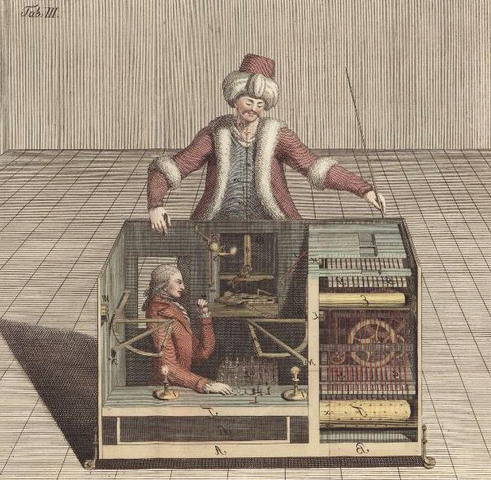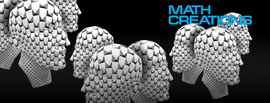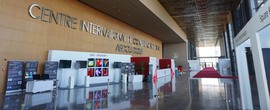We are calling students of the Art and Design fields as well as independent Artists and Designers to participate in the Math Creations contest for Art, Design and Mathematics. The goal of the contest is new creative ideas based on mathematical concepts and their realization. It is organized by the special research fields “Discretization in Geometry and Dynamics” and “Raum - Zeit - Materie. Analytische und Geometrische Strukturen” in collaboration with IMAGINARY.더 보기
New exhibition, Explaining Artificial Intelligence

IMAGINARY is creating a new exhibition, which aims to bring understanding about Artificial Intelligence to the general public. We are looking for partners and collaborators with interesting projects that can be turned into exhibits and works of art.
The exhibition, supported by the Carl Zeiss Foundation, will open on April 2020 and include demonstrations and explanations of Artificial Intelligence using interactive exhibits, artworks, videos, and workshops. It will feature both new and established research in fields like machine learning, expert systems, general artificial intelligence and more. The exhibition will visit three German cities, for three months each.
We are looking for partners and collaborators working in any branch of AI, with existing exhibits, or with research projects that can be turned into new ones. As always with IMAGINARY, all exhibits and content will be released online using Open Source and Creative Commons licences. We are also looking for works of art that present questions about AI and society, both in the present and the future.
If this sounds exciting to you please send us a short description of what you’re working on to ai@imaginary.org. Links to online examples and videos of your work are very welcome. You have time until the 1st of May.
Update: there is a new call for art projects, with an extended deadline (30th of September).
About IMAGINARYIMAGINARY is a non-profit organization dedicated to the communication of current research in mathematical sciences. It develops interactive software, 3d prints, visualizations for exhibitions, museums, workshops and teacher trainings. IMAGINARY also runs a collaborative platform for open source formats in mathematics communication.
It originated in the German Year of Mathematics 2008 at the Mathematisches Forschungsinstitut Oberwolfach (MFO), a Leibniz Institute, and has become an independent organisation in 2016 with the MFO remaining a shareholder. IMAGINARY won several awards and organized more than 340 exhibition activities in 60 countries and in 30 languages and attracted several million visitors.
About the Carl Zeiss FoundationThe Carl Zeiss Foundation’s mission is to create an open environment for scientific breakthroughs. As a partner of excellence in science, it supports basic research as well as application-orientated research and teaching in the MINT subject areas (mathematics, information technology, natural sciences and technical disciplines). Founded in 1889 by the physicist and mathematician Ernst Abbe, the Carl Zeiss Foundation is the oldest private science funding institution in Germany. It is the sole owner of Carl Zeiss AG and SCHOTT AG. Its projects are financed from the dividend distributions of the two foundation companies.





